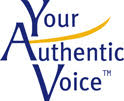This morning, I drove to one of my regular Starbuck’s to meet with a representative for a new publication. He had contacted me last week inquiring whether I would be interested in writing for this publication in my capacity as an executive coach. Because the publication targeted one of my key markets, I was interested, plus I like to write! I did ask him upfront if this was an advertising or editorial opportunity. I know that often publications will ask you to write “for free” for the opportunity to be in front of your target market. I also knew that this also could come with a financial commitment. I wasn’t interested in that, so wanted to make sure I wasn’t wasting my time. He told me it was editorial and that while the advertising was available, that wasn’t necessarily a part of it. Okay — we agreed to meet.
I got there early, bought a venti decaf iced Americano and started reading a book on branding I wanted to get through. Soon enough, he showed up. Dressed in a nice shirt and tie, he was very personable and asked me some casual “get to know you” questions. I certainly recognized all the sales aspects of our meeting, and was happy to meet him and learn more about this opportunity.
About 15 minutes into our conversation, after I’d seen a copy of the publication and learned about the distribution and existing consumer interest, I asked him what the commitment was. He said, “I almost don’t want to tell you!”
Hmmm . . .
It turned out that there was a fairly significant monthly financial investment to write for this publication. He presented it as a “marketing platform” because content marketing is the thing that will help you gain business. I agree with that, no problem. What I didn’t appreciate was the lying part.
I reminded him of my query when we spoke on the phone and asked him why he didn’t share this with me then. He said many people have different ideas about what advertising is and wanted to make sure I had the chance to learn more.
Okay . . .
Now, I wasn’t born yesterday. I knew I was there to have a sales conversation, but I didn’t suspect a financial commitment had to be part of it because I thought we had covered that on the phone. So, did he do himself a favor when he fudged the truth to meet me in person? Rather than go for the meeting, wouldn’t it have been better if he’d asked me questions to find out what I thought advertising was and shared this “marketing platform” with me up front? If I didn’t want to make the financial investment, we could have both saved ourselves some time and disappointment.
It can be tempting to justify these kinds of lies. Sometimes we call them “white lies” to make them seem less important. I’m not pointing fingers because I know I’ve told a white lie or two, or three, usually when I didn’t want to hurt someone, or thought I was protecting myself. But truthfully, they probably accomplished neither.
When it comes to your speaking, your branding, or your life, consider this carefully. What’s the real cost?

Leave A Comment